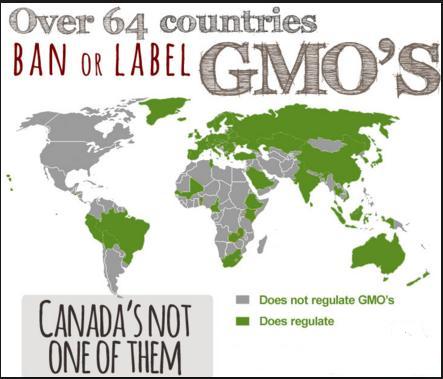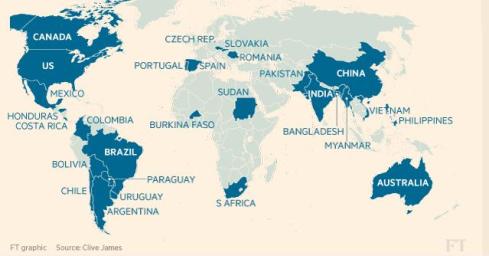The Rebranding of Monsanto. “Evil Personified”, Will the Public be Fooled?
The FT reports that Bayer, which has made a bid to take over Monsanto, has a relatively squeaky-clean brand, with ‘lots of positive connotations’. This, despite the company being rocked by scandal in 2001 when its cholesterol drug Lipobay was found to have serious side-effects and its production of a neonicotinoid insecticide which may have contributed to the decline in the bee population.
“Its oldest brand is aspirin, after all,” says Torben Bo Hansen, head of Philipp und Keuntje, a German advertising agency, adding “But for large parts of the population Monsanto is evil personified.”
In another FT article, Dirk Zimmermann explains:
“Bayer is by no means an exemplary company. After all, their business model is the same as Monsanto’s — they also sell genetically modified seeds that are resistant to the herbicides they produce. None of this is compatible with the idea of sustainable agriculture, or at least our understanding of it.”
Monsanto is opposed because of its leadership in producing and promoting genetically modified organisms – Germany is one ‘no-go’ area where 1m hectares of land are farmed organically. Countries producing GM crops are shown below (in dark blue):
Monsanto is also widely associated with the production and promotion of glyphosate, the active ingredient in Roundup, which the World Health Organisation said last year was probably carcinogenic. The EU is currently debating whether to relicence glyphosate, with many European governments opposed.
 Countries banning or labelling GMOs (compiled by Canadian campaigner)
Countries banning or labelling GMOs (compiled by Canadian campaigner)
“One option for Bayer would be to drop the Monsanto name if the transaction went through”. Is rebranding the answer?
The Brand Failures blogspot recalls that when massive amounts of radioactive material were released from the UK’s Windscale atomic works in 1957, following a serious fire, the local community in Cumbria were understandably terrified about the health implications of uncontained radiation. Rather than close the plant down, the government believed the best way to put distance between the disaster and the nuclear plant as a whole was to change the name, from Windscale to Sellafield.
“The potential is definitely there for Bayer’s brand to suffer in a takeover,” adds Hansen. “One option for Bayer would be to drop the Monsanto name if the transaction went through, to prevent that “negative sentiment carrying over to the new company” said Jeffrey Stafford, analyst at Morningstar (investment management).
But as Brand Failures records, in many cases, including Windscale/Sellafield and the Post Office/Consignia, the 99% are no longer so easy to fool.



